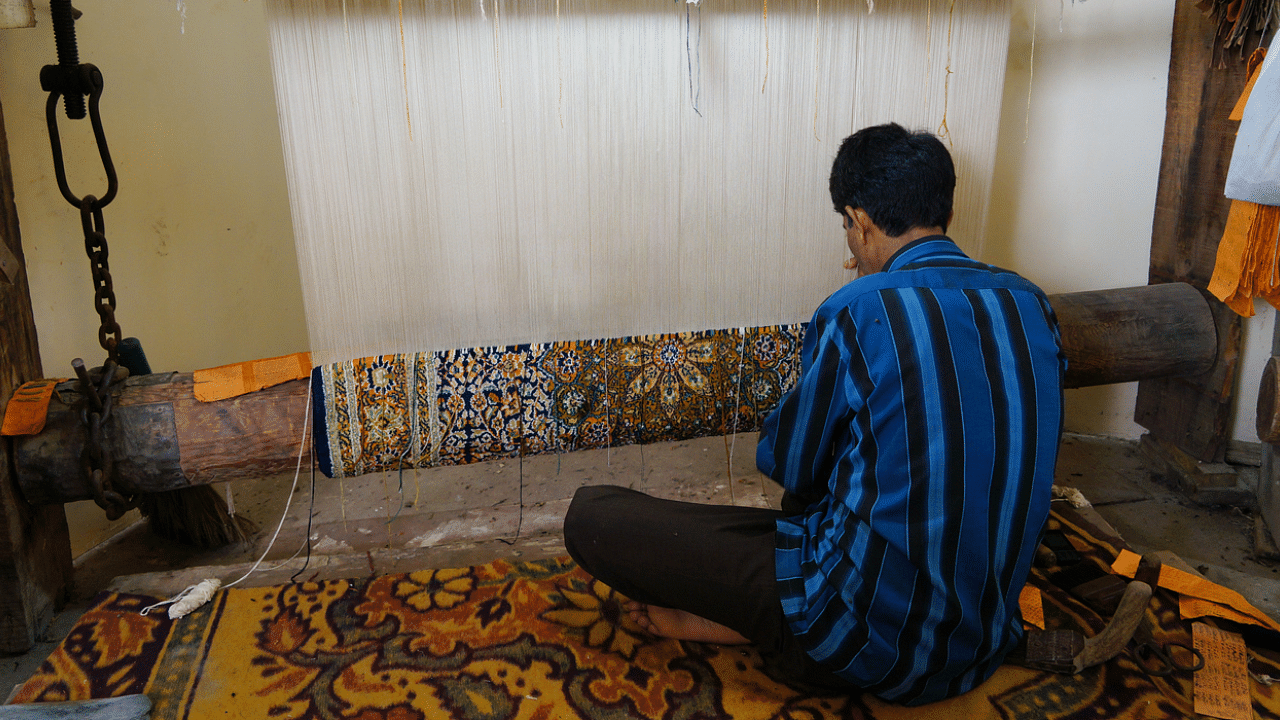
Implementation of the QR code-based Geographical Indication (GI) tag for Kashmiri hand-knotted carpets has brought a new lease of life to the carpet trade in Kashmir.
On February 11, Jammu and Kashmir Lieutenant Governor Manoj Sinha launched the first-of-its-kind initiative for the famed hand-knotted Kashmiri carpets to revive the sheen and glory of the industry.
The GI certifies the genuineness of hand-knotted Kashmir carpets with relevant information of the manufacturer, weaver, district and raw material.
The first consignment of GI-tagged carpets was exported to Germany from New Delhi earlier this month. This has brought back smiles to not just traders' faces but also artisans who are hopeful of better returns for their products, and also of inspiring the next generation to preserve the art.
The initiative was lauded by all stakeholders of an industry facing competition from Iranian and machine-made carpets. “Kashmiri carpet was the big brand enough to sell it anywhere in the world but some people were selling Iranian and machine-made carpets in the name of handmade Kashmiri carpets,” dealer Abdul Majeed told DH. “Customers could now verify the authenticity and other requisite details of carpets produced in Jammu and Kashmir and assure themselves that the product they purchased was not fake,” he added.
According to Umar Hameed, chairman of Carpet Export Promotion Council (CEPC), the initiative will go a long way in transforming and preserving the future of the carpet industry in Jammu and Kashmir. “Customers now could easily differentiate and verify the authenticity and other specific details of hand-knotted Kashmiri carpets made in J&K,” he said.
The origin of hand-knotted carpets locally known as “Kal baffi” dates back to the 15th century after which it progressively attained a high degree of perfection. It is said that Sultan Zain-ul-Abidin brought carpet weavers from Persia and central Asia into Kashmir to train the local inhabitants.
Carpets from J&K are being exported to at least 25 countries. In 2020-21, carpets worth Rs 115 crore were exported to Germany while the figures were Rs 34 crore for US, Rs 36 crore for UAE and Rs 22 crore for the Netherlands. The J&K administration is also working on starting a mega carpet village.
Addressing a seminar virtually on the introduction of GI tag for the carpets, organised by the CEPC, Ranjan Prakash Thakur, Principal Secretary, Government Industries and Commerce, said given the international export size and market competition, it is a prerequisite to safeguard the authenticity of the products for the sustainability of the local weavers and exporters.
Check out DH's latest videos